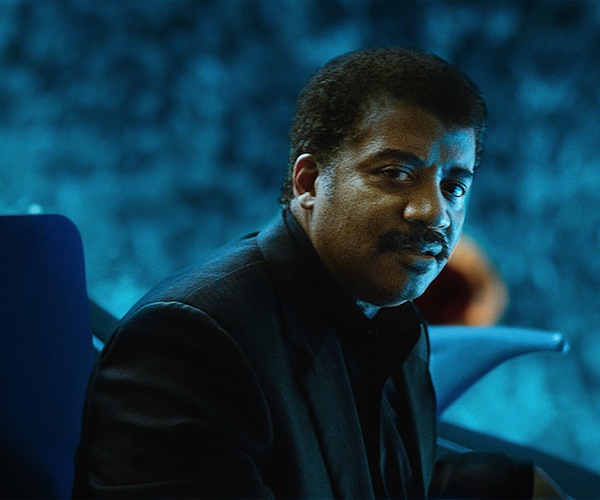TV Commentary: “Cosmos” vs. the Science Deniers
One of the most remarkable features of Cosmos — and possibly its greatest public service — has been its matter-of-fact, understated championing of the scientific method.
By Jon Garelick
Cosmos — the 13-part documentary series about scientific discovery and, well, the history of the universe — airs its final episode tomorrow, June 8, on Fox, the National Geographic Channel, and other networks. Since its first episode, the show — which is an updating of the Carl Sagan PBS series from 1989 — has earned plaudits for its vivid storytelling, spectacular CGI graphics, and inventive use of animation, and for the genial, informed presence of host Neil deGrasse Tyson. Revisiting some of the major discoveries in the history of science, Cosmos presents sophisticated ideas in an accessible and entertaining format that never condescends to its viewers.
But one of the most remarkable features of the program — and possibly its greatest public service — has been its matter-of-fact, understated championing of the scientific method, the testing of ideas by gathering evidence through experimentation. This might seem like an obvious point — after all, what else would one expect of a documentary program devoted to science? But in fact, Tyson and the show’s writers have offered what has been a breath of fresh air in this era of science deniers. These include creationists who have argued that evolution is merely an alternative theory to that of a Devine interpretation of the history of the universe, as well as climate-change deniers and those who believe that common, epidemic-preventing, potentially life-saving vaccines are dangerous drugs (specifically, that the measles vaccine causes autism).
Tyson and the Cosmos team have avoided strident polemic, which has made the show’s underlying lessons even more effective. In the penultimate episode, as Tyson carefully laid out the overwhelming evidence of the man-made causes behind “the greenhouse effect” and global warming, he said, “It’s basic physics. There’s nothing controversial about it.” Real science is rarely a matter of opinion.
Jon Garelick is a freelance writer who lives in Somerville, MA. He blogs at jongarelick.com and can be reached at jon.garelick4@gmail.com and followed on Twitter at @jgarelick. He is former arts editor of the Boston Phoenix.

